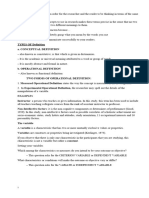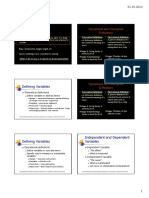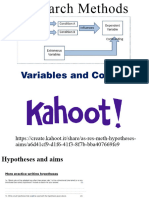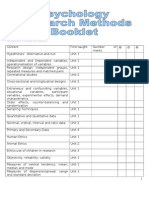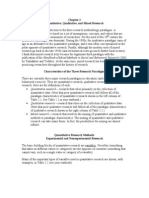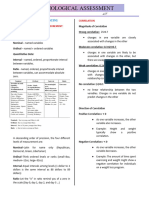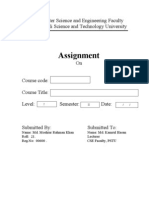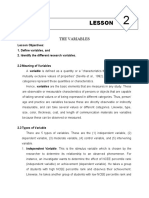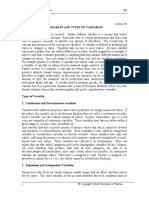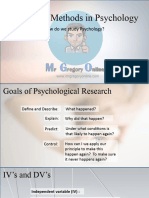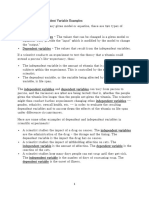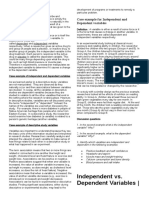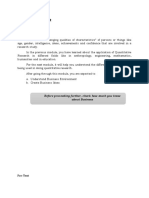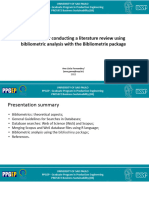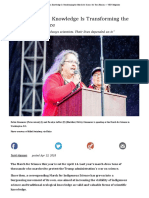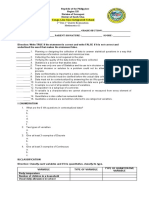0% found this document useful (0 votes)
72 views1 pageRM Hypothesis
A hypothesis is a testable prediction that restates the research question in specific terms. For example, a hypothesis about sugar and memory would predict that students who ingest 2 grams of sugar before studying will perform better on a memory task than those who do not ingest sugar. The independent variable is the variable that influences the dependent variable and can be manipulated, such as sugar intake. The dependent variable is the variable that is hypothesized to change in response to the independent variable, such as scores on a memory or spelling test.
Uploaded by
pbraijetCopyright
© Attribution Non-Commercial (BY-NC)
We take content rights seriously. If you suspect this is your content, claim it here.
Available Formats
Download as DOCX, PDF, TXT or read online on Scribd
0% found this document useful (0 votes)
72 views1 pageRM Hypothesis
A hypothesis is a testable prediction that restates the research question in specific terms. For example, a hypothesis about sugar and memory would predict that students who ingest 2 grams of sugar before studying will perform better on a memory task than those who do not ingest sugar. The independent variable is the variable that influences the dependent variable and can be manipulated, such as sugar intake. The dependent variable is the variable that is hypothesized to change in response to the independent variable, such as scores on a memory or spelling test.
Uploaded by
pbraijetCopyright
© Attribution Non-Commercial (BY-NC)
We take content rights seriously. If you suspect this is your content, claim it here.
Available Formats
Download as DOCX, PDF, TXT or read online on Scribd
/ 1










